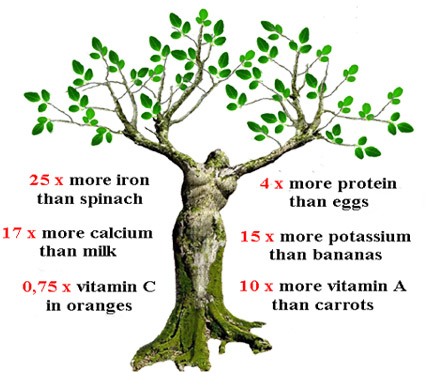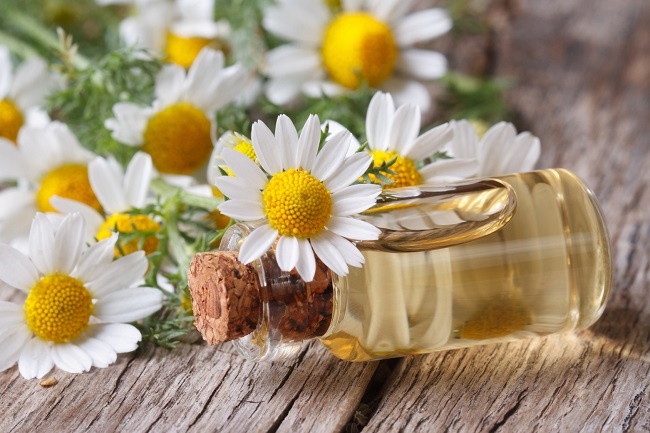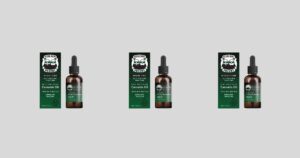Twenty Bong Hits : Emotional Issues Cannabis

(Photo: Sharon Letts, Humboldt County)
A friend and I were comparing notes on using cannabis to treat chronic depression. At this friend’s lowest point, doing 20 bong hits in a row seemed to do the trick momentarily, but it wasn’t sustaining.
How many of us have done this – holed ourselves up and smoked for hours to get emotional relief – but, it doesn’t come, it just numbs.
“Add anxiety or the mania that comes with a Bi-Polar diagnosis, and many patients add alcohol to calm themselves, as alcohol mimics Valium. Both drugs are toxic to the system, and sedation via alcohol only leads to dependence and more troubles than the initial anxiety.”
Suffering hormonal depression for 13 years with Thyroid Disease, in my fifties I rediscovered the herb for emotional relief, then my symptoms were increased going into Menopause. Teary-eyed emotions turned into crying jags, only quelled by hitting the bong.
A favorite essay penned, Cannabis: Calming the Crazy Bitch, details what women deal with emotionally via hormonal imbalances, and how I was inevitably helped overall via ingesting cannabis for myriad symptoms from both disorders.
That said, I’m still triggered by life situations and still deal with depression, anxiety, and occasionally, an overall sense of dread coming out of now where – a simply awful feeling, common with hormonal symptoms.
Another issue from both Thyroid Disease and Menopause include a type of Agoraphobia – not a fear of going outside, but a sort of paralysis to leave the house, or my safe space. When I was suffering just from Thyroid Disease I couldn’t get off the couch, add Menopause, and at times, I can’t leave the house. Both are helped dramatically with cannabis use.
A study out of Washington State University’s Department of Psychology, reported in the Journal of Affective Disorders, by lead study author, Carrie Cuttler, showed a reduction in depression levels just by taking one hit of cannabis high in CBD. Ten hits of a combination of THC and CBD found a decrease in stress levels, with two hits showing a clear reduction in anxiety.
At ten hits my friend would have found some relief, why continue on to 20?
As was explained to me by Dr. William Courtney while I was still in-house at the Times-Standard in Eureka, California, smoking gives merely a fraction of the beneficial compounds of the plant – with the patient literally burning up any help remaining, with effects gone in about an hour, and more smoking needed.
In this regard, smoking can add up to an expensive delivery of the remedy to the system. It’s actually quite inefficient and extravagant.
“Ingesting a minimum amount of 10 or 15 milligrams of tincture or medible gives the same, if not better, overall feeling of well-being that can last up to three to four hours.”
I’m not suggesting giving up burning flower. This Educated Stoner knows better. There’s nothing quite like smoking fresh and flavorful terpenes from flower. The effect is immediate and as uplifting as a morning jog – raising endorphins and distressing like nothing else can.
I am suggesting that smoking be done in tandem with ingesting, or to top off ingesting, increasing the efficacy of the medible, activating the entourage effect, giving better overall, longer lasting relief for symptoms, while saving the pocket book the expense of pricey flower.
This can also be said for dabs, but more so, as dabs are expensive. If you’ve reached that level of efficacy with burning flower, and now need to step up to smoking concentrates for effect – then needing more and more concentrates for the same feeling – you should probably think about ingesting to compensate, as this mode of operendi is telling you that your tolerance has risen and needs to be brought back down.
“Titrating your cannabis use down to a lower intake level is done, not only to get that feeling of euphoria back, but to help the plant help your body in a more efficient and economical way.”
So, the next time you are in that dark place, taking one hit after the other, with little effects on your emotional state, you might want to try a little tincture or a medible, enacting the entourage effect, giving you an overall sense of well-being, for a longer amount of time.
Building biological tolerances to plants,
titrating up or down to correct.
Since using cannabis oil for a breast cancer scare in October of 2012, I’ve been sharing my personal, and seemingly miraculous prevention and healing from cannabis in publications around the world, and on daily social media posts.
I’ve been able to deal with issues such as UTIs, chronic pain, sleep disorders, depression, skin tags and cancers by using several delivery modes of cannabis and plant-based compounds.
In two of the blogs on my web site, I’ve shared that continued use of cannabis oil, along with daily micro-dosing, smoking and topical use, have not only quelled numerous ailments, my daily use has prevented me from getting sick in the first place, or has substantially reduced cold or flu symptoms in scope and duration.
That was up until this past year, when I became challenged in my life situation, subsequently (I assume) weakening or stressing my immune system – while (I assume) finally becoming tolerant to the strong cannabis oil that (I assume) had kept me healthy up until that point.
In researching tolerance to plant-based remedies, each search turned up more information on tolerance to prescription medications, and the need to increase dosage. The same tolerance can be said for plant-based remedies.
In the cannabis community, titrating down after building tolerance to cannabis use is common. I’ve known many patients and recreational users who stop smoking for up to two weeks at a time, and return to partaking, with newfound feelings of euphoria, tolerated after constant use.
Recently, a friend stopped medicating with cannabis for two weeks as a test. She had replaced alcohol with cannabis some years prior, and had a newfound life as a better mom and wife with cannabis. Her abstinence was not pretty, though, and she became symptomatic and an unsympathetic human in record time.
Tolerance: L. Tolerantia
1. The ability to endure unusually large doses of a drug or toxin.
2. Acquired drug tolerance, a decreasing response to repeated constant doses of a drug or the need for increasing doses to maintain a constant response
(from Biology-Online.org)
No, stopping cannabis use cold turkey when you are a needful patient is not a good idea. Plant-based remedies are proactive, and you must be in tuned to the needs of your body for proper use. That said, titrating down for efficacy is another story altogether.
One young women in her 20s was smoking a good amount of dabs daily, treating a chronic condition. I suggested she begin ingesting at least the minimum 10 milligrams of an edible or medible (same thing), as this would cause her to need less dabs as often.
The key is knowing why you are medicating or recreating, and what your true dose or tolerance is,
For myself, I had titrated down prior from my nightly cannabis oil intake before, as it can take more and more to help me get to sleep when I become used to it. Just as in prescription meds, that Valium needs to be increased for the same effects over time.
In my case, with life stresses added, it seems the same dose I had taken for years just wasn’t keeping illness at bay. Winter of 2017 found me on the edge of getting cold or flu four times – never lasting longer than two or three days, but the symptoms were more pronounced.
Most patients who ingest a cannabis concentrate daily have less inflammation and complications thereof, and less to no infections. This means, when I presented with a cold or flu, lacking were the fevers, chills and body aches that are typical when the body is fighting infection, as the cannabis quells those symptoms. My main symptoms were fatigue and some bronchial – made worse by my smoking carbon – causing me to switch to vaporizing.
However, by January of 2018, I began presenting with low-grade fevers and then infections, starting with staph infections on my right leg; an eye infection; and then an ear infection.
This concerned me, as I had been literally ailment-free for the better part of five years – and gloating about it, I might add.
My solution was not to run to the doctor for a round of antibiotics. Why would anyone use “anti-biotics,” seriously, anti – your body? That kills everything.
No, I quickly researched other plants that have the same anti-infection, antibacterial, and antiviral compounds as cannabis, titrated down from my oil, and added Moringa and chamomile concentrates to my daily regimen.

Moringa
-
inflammation-related diseases
-
cancer
-
diabetes
-
arthritis and other joint pain, such as rheumatism
-
allergies and asthma
-
constipation, stomach pains and and diarrhea
-
stomach and intestinal ulcers or spasms
-
chronic headaches
-
heart problems, including high blood pressure
-
kidney stones
-
fluid retention
-
thyroid disorders
-
low sex drive
-
bacterial, fungal, viral and parasitic
Chamomile

-
Natural allergy fighter or hay fever
-
PMS natural remedy and other menstrual disorders
-
Skin disorders
-
Ulcers
-
Wounds
-
Gastrointestinal disorders
-
Natural arthritis cure and rheumatic pain reliever
Within 24 hours the low-grade fever and ear ache were gone, and I’ve not had any other complications or signs of infection in two-weeks since.
Am I assuming a lot by insisting that plants are the answer to everything? I’ve been told by many I’m irresponsible to share the stories of healing, yet I continue to share, as I and others continue to heal.
Why do I continue to share? Because in writing for you all, I’ve done my homework. Plants are strong medicine.
Since the late 1930s the pharmaceutical industry has been in the profitable business of patenting synthetic compounds that can only mimic the strong healing properties of plants.
The FDA was created to support this theory. Medical schools within our universities were created on the heels of patents of synthetic medicine, not Apothecary – the age old tradition of plant-based remedy.
Prior to the creation of pharmaceuticals via petroleum byproducts, all we had were plants and Apothecary. America’s first Surgeon General was an “Apothecary General,” and used plants on the battle field during the Civil War – including cannabis concentrates for severe pain during surgery.
If you are under the impression that cannabis, or plants in general, may not work for you, the issue may well be that you just have not found your true dose or plant for your specific ailment.
As for cannabis and its psychoactive properties, unless you are used to the “high,” you must titrate up slowly over time, initially – or you will have a bad trip. No other way to explain it. You won’t die, but you might think you are. Cannabis won’t stop your heart, but it does affect the central nervous system, causing anxiety, panic attacks, and heart palpitations – but, it won’t stop your heart.
If you’ve been a long-time user and are unable to keep illness at bay, or you just aren’t feeling the euphoria any longer – titrating down may be a good idea.
For good information on daily dosing with cannabis, read Regina Nelson’s book, The eCS Therapy Companion Guide, on Amazon.
Keep updated on all the latest news and updates in the Cannabis industry here at Beard Bros Pharms by signing for our Friday Sesh Newsletter here. Always Dank and Never Spam!

















